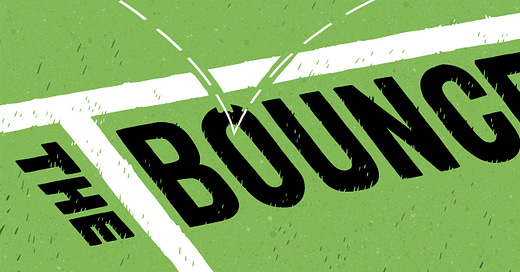Big Interview PtII: 'I don't care if he bowls out his arse, he takes wickets!'
Jarrod Kimber talks all things Black Caps. PLUS: Sneak preview of tomorrow's guest essay on the Clearys; and the NRL is on a coke bender.
In Pt II of the big interview with global cricket journalist Jarrod Kimber we traverse his relationship with New Zealand cricket (small c), and the screenwriting technique he uses to write so perceptively about the qualities of smaller cricket-playing nations.
Kimber also explains how New Zealand’s faltering sports media industry has afforded him the opp…
Keep reading with a 7-day free trial
Subscribe to The Bounce to keep reading this post and get 7 days of free access to the full post archives.




